P.E.I. pledges 4 times as many EV fast chargers by end of 2024, as tourists run out of juice
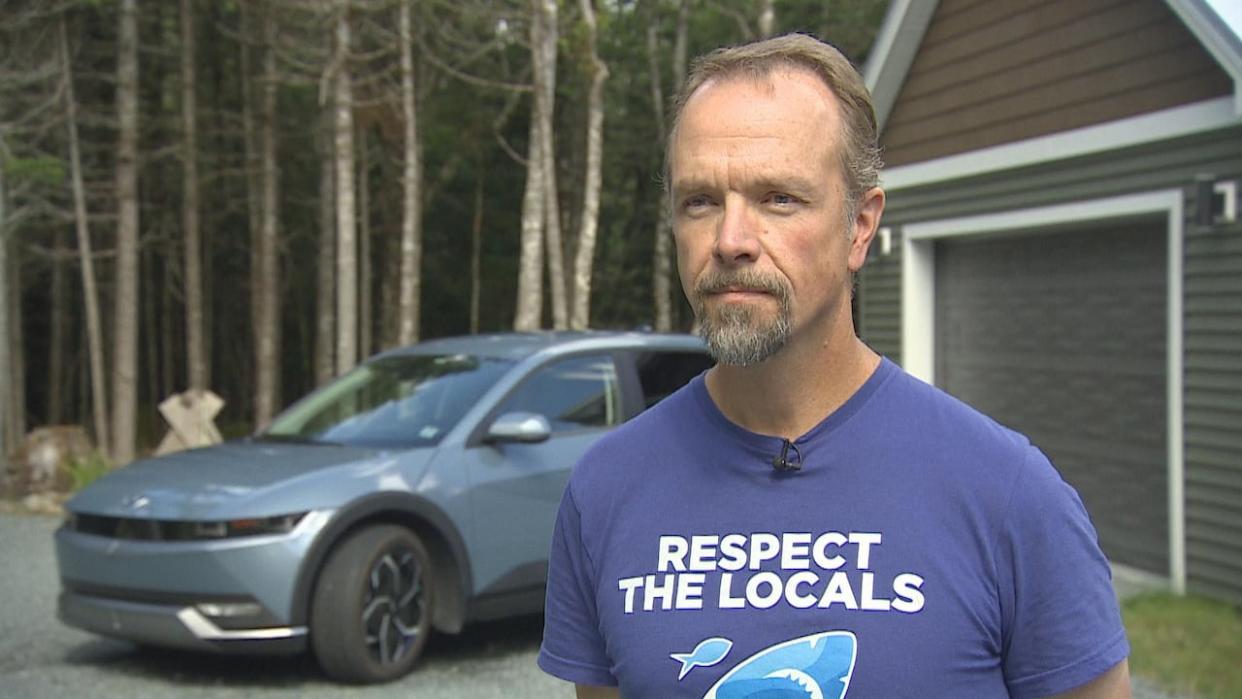
If you're an electric vehicle owner vacationing on Prince Edward Island, you'll want to do your homework and plan ahead.
That's according to Derek Burnett of Gaetz Brook, N.S., who says he struggled to find a charger for his vehicle during a recent family visit to the province.
Burnett said the car was charged before the family hit the road, planning to stay at a Charlottetown hotel that had three Level 2 chargers, which can take upwards of five hours to fully power a vehicle.
The family thought they could leave their car powering up overnight during their stay and have plenty of power during the day. But when they arrived, they found two of the hotel's chargers were not working, and the third was perpetually in use.
"We were forced to [say] 'OK, we're gonna go look around and see if we [can] find a fast charger,'" Burnett said.
Using an app to locate chargers, they learned Charlottetown had just four Level 3 chargers — the fastest type.
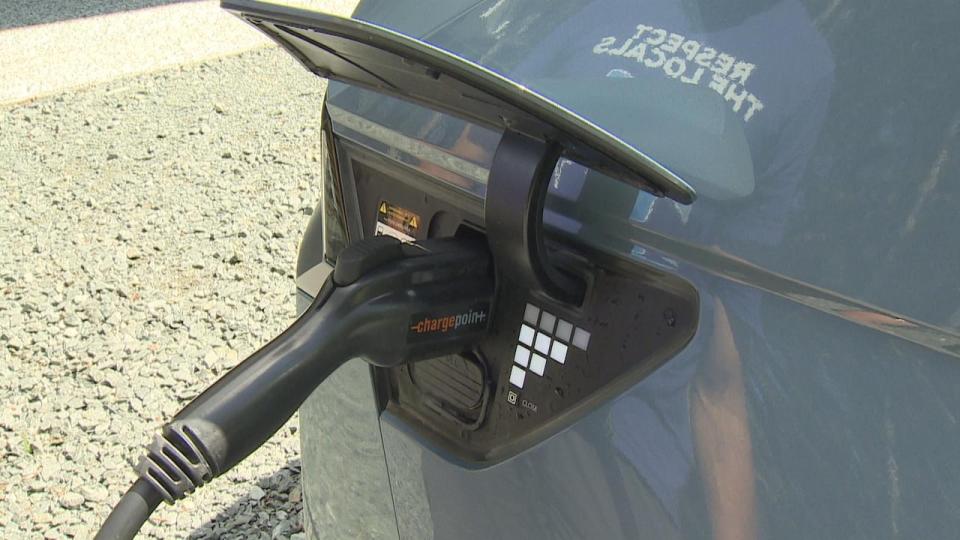
Burnett says he had to visit four charging stations in Charlottetown before he could eventually power up. (Mark Crosby/CBC)
The family went to the first one, but it had been converted to a Level 2. Then moved on to the provincially owned charger near Canadian Tire, but it was out of service. They visited an auto dealership, but the charger was being used by the dealership's own vehicles. On to another dealership, where there was a lineup.
"We can get from 20 per cent to 80 per cent [charge] in about 20 to 25 minutes, so we knew we didn't have to wait long.... It was just waiting for our turn," Burnett said.
As we were waiting there, more people showed up after us, so it was a continuous stream of people joining the queue for that one Level 3 charger in Charlottetown. — Derek Burnett
"Everybody was in the same situation — and as we were waiting there, more people showed up after us, so it was a continuous stream of people joining the queue for that one Level 3 charger in Charlottetown."
Burnett said the majority of other drivers were also tourists, and as they waited their turn, they talked about the lack of EV charging stations across the Maritimes.
Province working to fill gaps
Such a situation does not surprise the province's sustainability division director.
"It's not really new news for us, but something we anticipated with the uptake of EVs across Canada," said Derek Ellis, director of the sustainability division for the Department of Environment, Energy and Climate Action.
"It's not such an issue for Island residents — most of those will do 95 per cent of their charging at home. A bigger issue is for tourists that are visiting. And we don't want, you know, the lack of infrastructure to be prohibitive on that front."
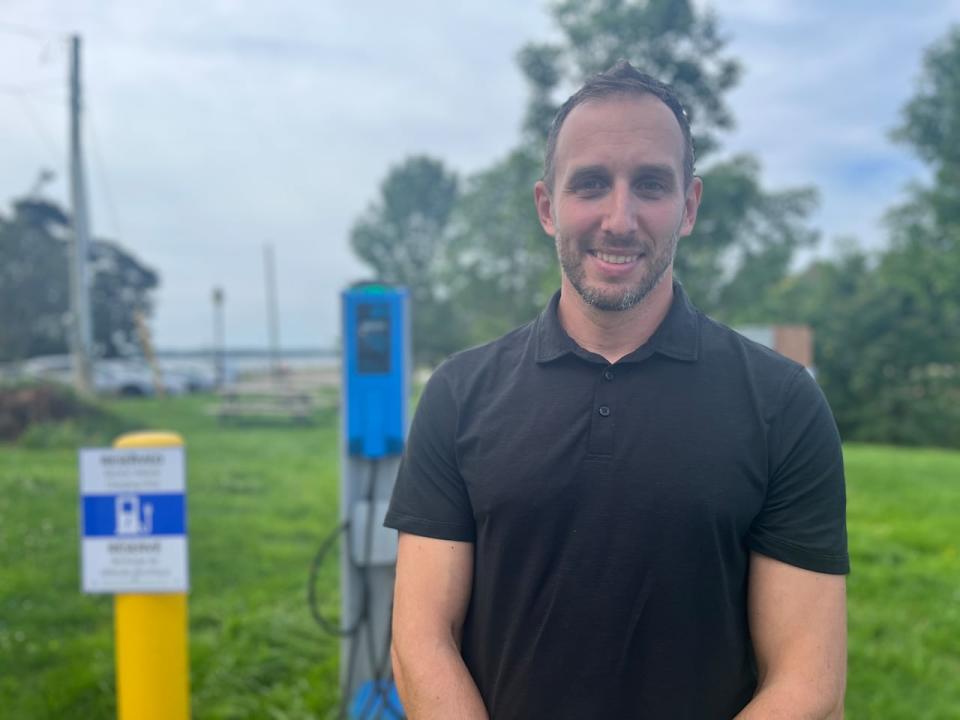
Derek Ellis says his department is aware of the infrastructure demand generated by the tourism season. (Nicola MacLeod/CBC)
Ellis said the department is working to quadruple the number of Level 3 chargers for electric vehicles by the end of 2024.
There are six fast chargers distributed across the province at the moment, and the government plans to twin the current chargers so that each has two ports for cars to use. It's also accepting proposals from companies to add another dozen or so stations next year, bumping up the number of charging ports owned by the province to 24 or 25.
Moving forward, it'll be a combination of… public and private investment on this front. — Derek Ellis
"We have had a number of businesses install Level 3 chargers as well through our EV charger program," Ellis said. "Moving forward, it'll be a combination of… public and private investment on this front.
"I think the province and our federal government will have to continue to be active."
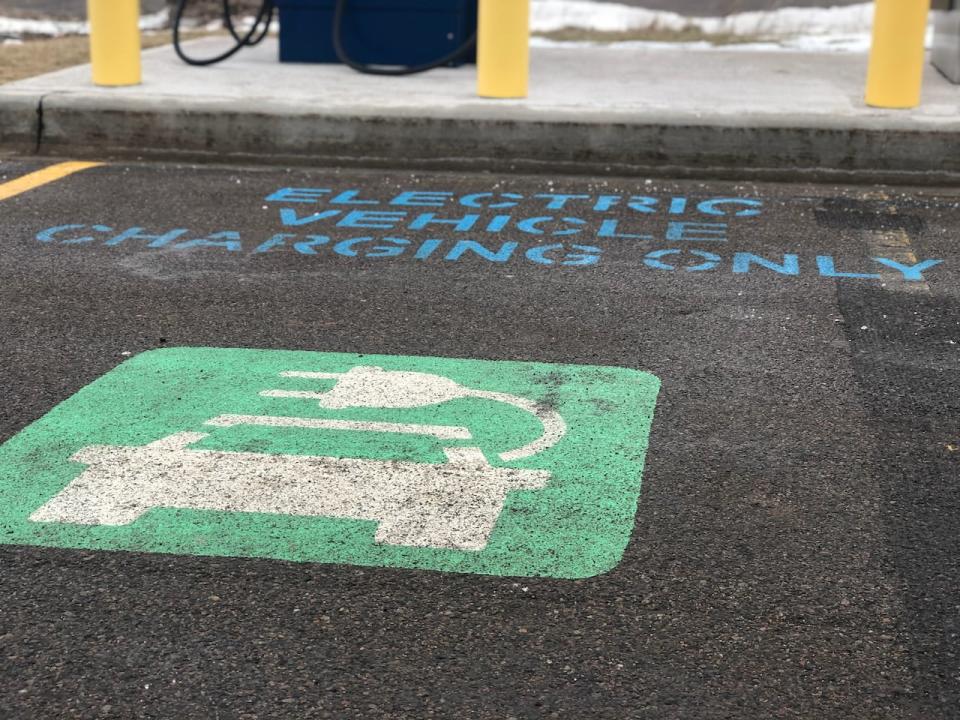
The province says its Level 3 charger near Canadian Tire in Charlottetown will be fixed next week. (Nicola MacLeod/CBC)
As for the broken charger near the Canadian Tire in Charlottetown, Ellis said parts have been ordered and it should be repaired next week.
Do your homework
As for Burnett, he said the charging woes continued after the family left Charlottetown.
Their car's charge got them to Borden-Carleton where there was — once again — a lineup. They decided to press on to Aulac in New Brunswick. Another lineup.
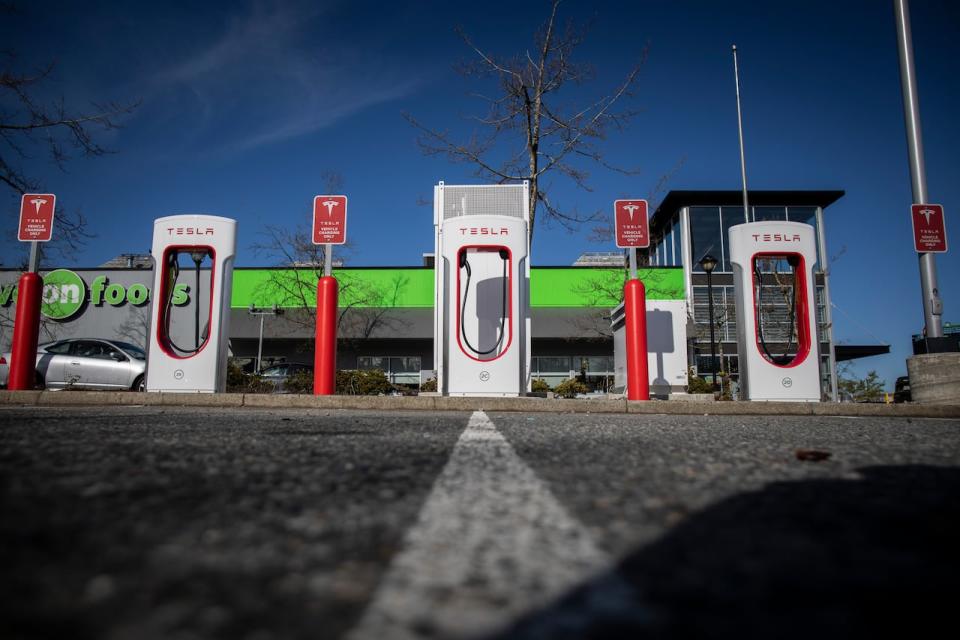
Tesla has a number of chargers on P.E.I. for its network of vehicles. Adapters are available for other vehicles in some cases, but it's not always possible to use those chargers unless you have a Tesla. (Ben Nelms/CBC)
So Burnett opted to bump the speed down to 100 km/h to make the most of the car's remaining charge in order to get home to the Halifax area, pulling in with about 16 kilometres of power to spare — the closest he has ever pushed the car.
"It was disappointing, especially considering the focus that our government's been putting — or saying they've been putting — on electric vehicles," he said.
"They'll talk about how the change to electric vehicles is coming for everybody eventually. But the infrastructure just isn't there."
Nevertheless, Burnett said he doesn't want his experience or others like it to dissuade people from getting an electric vehicle. It's just that he cautions: "Right now, anybody that has an electric vehicle going on a long trip, they do need to plan."


